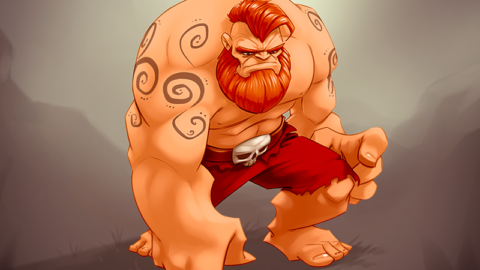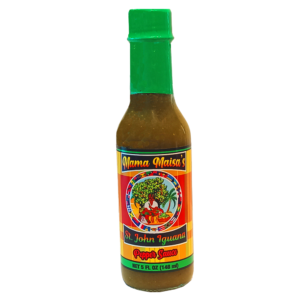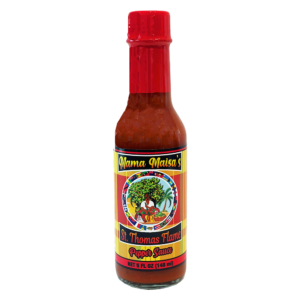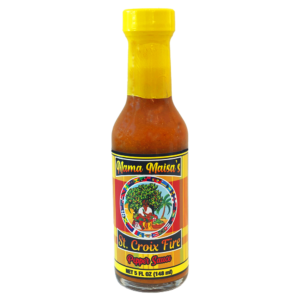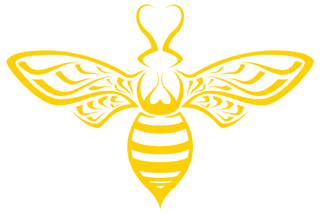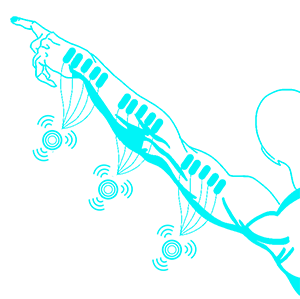Source: NCAA Sports Contracts And Amateurism
Author: Sports Law // USLegal
With March Madness heading into the Sweet Sixteen, conversation regarding the “Student Athlete” and their forced status within the NCAA system has now reached feverish levels. Never before have personal insights and opinions on the revenue being generated from “amateurs” generated such personal opinions.
Let’s be clear, the NCAA has deemed all students who play a colligiant sport to be classified as “Student Athletes” and are limited to Amateur Status. Let’s run down what the NCAA deems a “Professional Athlete to be:
- Are paid (in any form) or accept the promise of pay for playing in an athletics contest;
- Sign a contract or verbally commit with an agent or a professional sports organization;
- Ask that your name be placed on a draft list (Note: in basketball, once you become a student-athlete at an NCAA school, you may enter a professional league’s draft one time without jeopardizing your eligibility provided you are not drafted by any team in that league and you declare your intention in writing to return to college within 30 days after the draft;
- Use your athletics skill for pay in any form (for example, TV commercials, demonstrations);
- Play on a professional athletics team; or
- Participate on an amateur sports team and receive any salary, incentive payment, award, gratuity, educational expenses or expense allowance (other than playing apparel, equipment and actual and necessary travel, and room and board expenses).
See: Pro athletes and the things they trademark
-
These Boots Were Made For Walking
Latest posts by Applicist (see all)- Sentiment Analysis: The Human Side of AI - May 8, 2024
- Silver Doors: Innovation Markers that Create Generational Wealth and Opportunity - January 5, 2024
- T²xT²: ChumAlum² - November 23, 2023
Latest posts by Applicist (see all)- Sentiment Analysis: The Human Side of AI - May 8, 2024
- Silver Doors: Innovation Markers that Create Generational Wealth and Opportunity - January 5, 2024
- T²xT²: ChumAlum² - November 23, 2023
I personally can NEVER have too many pairs of boots. What began as a perennial accessory now come with...
-
Dutch Wax Is Royalty
Latest posts by Applicist (see all)- Sentiment Analysis: The Human Side of AI - May 8, 2024
- Silver Doors: Innovation Markers that Create Generational Wealth and Opportunity - January 5, 2024
- T²xT²: ChumAlum² - November 23, 2023
Latest posts by Applicist (see all)- Sentiment Analysis: The Human Side of AI - May 8, 2024
- Silver Doors: Innovation Markers that Create Generational Wealth and Opportunity - January 5, 2024
- T²xT²: ChumAlum² - November 23, 2023
In case you have also wondered where those beautiful, saturated, regal patterns imported from the company name is Dutch...
-
Made in Africa: Dandy Men
Latest posts by Applicist (see all)- Sentiment Analysis: The Human Side of AI - May 8, 2024
- Silver Doors: Innovation Markers that Create Generational Wealth and Opportunity - January 5, 2024
- T²xT²: ChumAlum² - November 23, 2023
Latest posts by Applicist (see all)- Sentiment Analysis: The Human Side of AI - May 8, 2024
- Silver Doors: Innovation Markers that Create Generational Wealth and Opportunity - January 5, 2024
- T²xT²: ChumAlum² - November 23, 2023
Made In Africa Foundation was founded in 2011 by Ozwald Boateng, Kola Aluko and Atlantic Energy to support...
-
Africa is Now!
Latest posts by Applicist (see all)- Sentiment Analysis: The Human Side of AI - May 8, 2024
- Silver Doors: Innovation Markers that Create Generational Wealth and Opportunity - January 5, 2024
- T²xT²: ChumAlum² - November 23, 2023
Latest posts by Applicist (see all)- Sentiment Analysis: The Human Side of AI - May 8, 2024
- Silver Doors: Innovation Markers that Create Generational Wealth and Opportunity - January 5, 2024
- T²xT²: ChumAlum² - November 23, 2023
Africa is Now is a series of musings, investigative reporting, cultural overview, and innovative strides that collectively narrate the...
-
Solar Power Highways? Say Word…
Latest posts by Applicist (see all)- Sentiment Analysis: The Human Side of AI - May 8, 2024
- Silver Doors: Innovation Markers that Create Generational Wealth and Opportunity - January 5, 2024
- T²xT²: ChumAlum² - November 23, 2023
Latest posts by Applicist (see all)- Sentiment Analysis: The Human Side of AI - May 8, 2024
- Silver Doors: Innovation Markers that Create Generational Wealth and Opportunity - January 5, 2024
- T²xT²: ChumAlum² - November 23, 2023
Solar Roadways | Michéle Ohayon from Focus Forward Films on Vimeo. What if roads and parking lots were...
-
Robotics and We: Are We Compliant?
Latest posts by iDeamata (see all)- G.L. Newkirk: AI Seminal Ideation Process - February 1, 2021
- Robotics and We: Are We Compliant? - November 5, 2012
- NRG: Empowering NFL Stadiums | Future Bound! - November 5, 2012
Latest posts by iDeamata (see all)- G.L. Newkirk: AI Seminal Ideation Process - February 1, 2021
- Robotics and We: Are We Compliant? - November 5, 2012
- NRG: Empowering NFL Stadiums | Future Bound! - November 5, 2012
Can a robot be your friend? Your teacher? Your caretaker? The answer is yes and it may not be...
-
Industrial Design: Intersect Card
Latest posts by Applicist (see all)- Sentiment Analysis: The Human Side of AI - May 8, 2024
- Silver Doors: Innovation Markers that Create Generational Wealth and Opportunity - January 5, 2024
- T²xT²: ChumAlum² - November 23, 2023
Latest posts by Applicist (see all)- Sentiment Analysis: The Human Side of AI - May 8, 2024
- Silver Doors: Innovation Markers that Create Generational Wealth and Opportunity - January 5, 2024
- T²xT²: ChumAlum² - November 23, 2023
Industrial Design is the effort to blend astheitcs with user sensibilities. Historically, consumer electronics and furniture have all benefited...
-
What Do Professional Athletes Trademark?
Latest posts by KOLOR AI (see all)- SonBI: Sonic Bio-Tissue Interface - October 6, 2020
- Project VIZARD // Conceptual Ideation - October 6, 2020
- Wait! Explain to Me in Layman’s Terms: What is Technology Transfer? - September 29, 2020
Latest posts by KOLOR AI (see all)- SonBI: Sonic Bio-Tissue Interface - October 6, 2020
- Project VIZARD // Conceptual Ideation - October 6, 2020
- Wait! Explain to Me in Layman’s Terms: What is Technology Transfer? - September 29, 2020
Source: Pro athletes and the things they trademark Author: Ahiza Garcia @ahiza_garcia
-
My IP Life Launches to Protect Your Intellectual Property
Latest posts by Dark Hive (see all)- My IP Life Launches to Protect Your Intellectual Property - October 12, 2017
- My IP Life: It’s your life. Own it. - August 5, 2017
- You’ve Created A Hashtag. Great! But Who Owns It? #mine - August 5, 2017
Latest posts by Dark Hive (see all)- My IP Life Launches to Protect Your Intellectual Property - October 12, 2017
- My IP Life: It’s your life. Own it. - August 5, 2017
- You’ve Created A Hashtag. Great! But Who Owns It? #mine - August 5, 2017
Piscataway, NJ — (October 12, 2017) Dark Hive, LLC, a provider of wealth building and investment services, has partnered...
-
The Importance of IP Protection v. The Cost of IP Protection
Latest posts by Applicist (see all)- Sentiment Analysis: The Human Side of AI - May 8, 2024
- Silver Doors: Innovation Markers that Create Generational Wealth and Opportunity - January 5, 2024
- T²xT²: ChumAlum² - November 23, 2023
Latest posts by Applicist (see all)- Sentiment Analysis: The Human Side of AI - May 8, 2024
- Silver Doors: Innovation Markers that Create Generational Wealth and Opportunity - January 5, 2024
- T²xT²: ChumAlum² - November 23, 2023
In 1826, an English chemist named John Walker invented the friction matchstick by sheer accident. A stick coated...
But what about the “Likeness and Your Name”? Can a Student Athlete generate capital from exploiting and engaging in agreements that use their name, likeness or voice? If the NCAA has Intellectual Property that it actively licenses to third party vendors, should the players also be able to engage in such contracts or at least be invited to the negotiation table and represent themselves? What rights do the players have?
Source: College athletes routinely sign away rights to be paid for names, images
Author: John Keilman and Jared S. Hopkins Contact Reporters
Chicago Tribune
Let’s start out with a list of Trademarks that the NCAA currently own:

 |
Subscribe for a free preview of the
|
[mc4wp_form]
Michael Carrier, a Rutgers law professor who specializes in antitrust matters, said the waivers appear to be another bulwark aimed at preventing the compensation of college athletes.
“The NCAA dropped it when it looked like an issue and this made them appear more generous, but a lot of the power is held at the conference level,” he said. “As a practical matter, if you’re signing away these rights anyway, then that’s really going to limit you.”
Before the start of every season, college athletes must sign an NCAA “student-athlete statement” to affirm their eligibility. It covers things such as educational records and drug testing, and for years it included a passage in which athletes gave permission for the NCAA and related parties “to use (the athlete’s) name or picture to generally promote NCAA championships or other NCAA events, activities or programs.”
– Michael Carrier, Rutgers Law Professor




